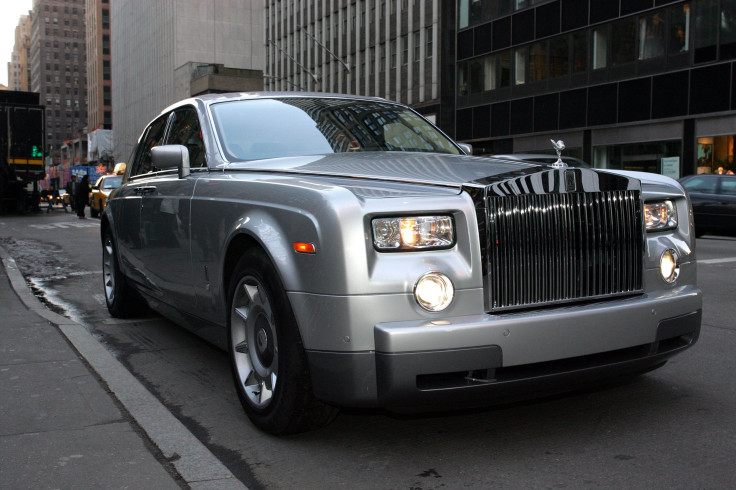As Wall Street Bonuses Dip, New York Luxury Markets Are Feeling The Pain

At Lane Jewelers in lower Manhattan, owner David Ostrow looked out the window. On the sidewalk, a man with a gray mustache peered intently at the necklaces in the display case. “This is his third time here this week,” Ostrow said. “He hasn’t bought anything.”
Business is down at the jeweler, a third-generation family-owned store just a block from Wall Street, whose clientele includes both C-suite executives and back-office bankers. The culprit: a lackluster season for big bank bonuses. “I can already tell you my numbers are down from last year,” Ostrow said.
When bonuses spike, Lane does brisk business on items like diamond earrings and tennis bracelets, purchases Ostrow called “pick-me-ups.” But the past few months have been a letdown. “Obviously there’s a trickle effect,” Ostrow said. “These guys’ whole year is their bonus check.”
Eight years after the financial crisis, Wall Street bonuses have yet to match the soaring peaks of 2006 and 2007, and recent gains in annual payouts have proved short-lived. The average New York investment banker’s bonus fell by 9 percent in 2015 to $146,200, the second down year in a row, according to New York Comptroller Thomas DiNapoli. And luxury markets are feeling it.
“The financial sector has been important for the New York economy since Peter Stuyvesant’s time 400 years ago,” said Lawrence J. White, professor of economics at New York University’s Stern School of Business. “There is no question there’s a ripple effect if bonuses aren’t going to be what they’ve been in the past.”
Of course, the smaller average bonus, which amounts to nearly three times the median American salary, is nothing to sneeze at. But in New York City, the world’s luxury capital, a wobble in bankers’ bonuses sends a shudder through markets for everything from Lamborghinis to $40 steaks.
Wages and salaries in the securities industry make up more than one-fifth of total New York City income, according to the comptroller’s office, although only 5 percent of New Yorkers work in finance. Overall, Wall Street bonuses add up to more than twice the incomes of all U.S. minimum-wage workers.
The total decline in 2015 year-end bonuses amounted to $1.7 billion, although not all of that sum will be felt immediately, since it includes deferred stock awards. But bonus season, which typically lasts from December to March, serves as a bellwether for luxury markets, according to Milton Pedraza, chief executive of the Luxury Institute, a high-end consulting goods and services consulting firm.
“Salaries are great, but bonuses are what really make the financial services industry,” Pedraza said. “It’s a performance-driven industry.”
Several factors combined to crimp bonuses in what DiNapoli called “a challenging year in the financial markets.” The seven-year bull market in stocks finally stumbled over the summer, catching some banks off balance. And the advance of new regulations has weighed heavily on some banking divisions, particularly bond trading, where revenue has fallen nearly 40 percent since 2010 at the 10 largest investment banks.
“The uncertainty that exists in the marketplace will make people store their nuts for the winter a great deal more this year than in previous years,” Pedraza said. The same global economic worries that battered the markets in the past nine months have also diminished high-end foreign demand, Pedraza said, estimating that luxury sales have dipped as much as 20 percent in the past year.
Robert Serrano is feeling the pinch. As manager of Manhattan Motorcars, Serrano sells the type of high-end cars financiers often splurge on: Bugatti, Porsche, Rolls-Royce. But in a disappointing Wall Street bonus season, few are moving. “We had an extremely slow January and February.” Serrano said. “If the market has any effect on high-end cars, then you’re definitely seeing it.”
Serrano, who said that around half his clients work in the financial industry, has had to accept multiple canceled orders already this year, a relatively rare occurrence. “The market has a direct effect,” Serrano said. “Our cars are wants, not needs.”
Wall Street weddings are also shrinking with the bonuses, according to Maya Kalman, CEO and creative director at Swank Productions, a luxury wedding planning and event design firm in the Chelsea section of Manhattan. Two clients who work in banking have recently approached Kalman to dial back on the number of wedding invites they can afford. For a Swank event, clients pay roughly $1,000 a head.
In a season that usually has clients looking forward to spring, sliding bonuses have put a slight chill on the planning business. “In March the weather gets better and people’s outlook gets brighter,” Kalman said. “But the first couple of months this year, bonus issues have definitely played a role in people being a little more skittish about their budgets.”
At Delmonico’s restaurant just off Wall Street, smaller bonus checks have meant fewer celebratory steaks for the bankers who work in the buildings towering overhead. “Naturally, when the bonuses are not what people expect them to be, we might see a slight decline,” said Carin Sarafian, the director of sales and marketing at Delmonico's.
But business at the famed steakhouse, which opened in 1837, hasn’t suffered too greatly. The modest downturn in diners toasting big bonuses has been replaced by more morale-building team events, Sarafian said, as managers seek to assuage bankers whose payouts shrank in 2015.
And the restaurant has seen worse than this year’s disappointing bonus haul. “We’ve weathered all the ups and downs of markets, 9/11, Hurricane Sandy,” Sarafian said. “I don’t think the bonuses are going to really hurt Delmonico’s anytime soon.”
At Lane Jewelers, Ostrow expressed optimism that bonus season might end on a positive note. A smartly dressed man standing at the counter was hopeful, too. “I find out Friday,” he said, crossing his fingers.
© Copyright IBTimes 2024. All rights reserved.





















